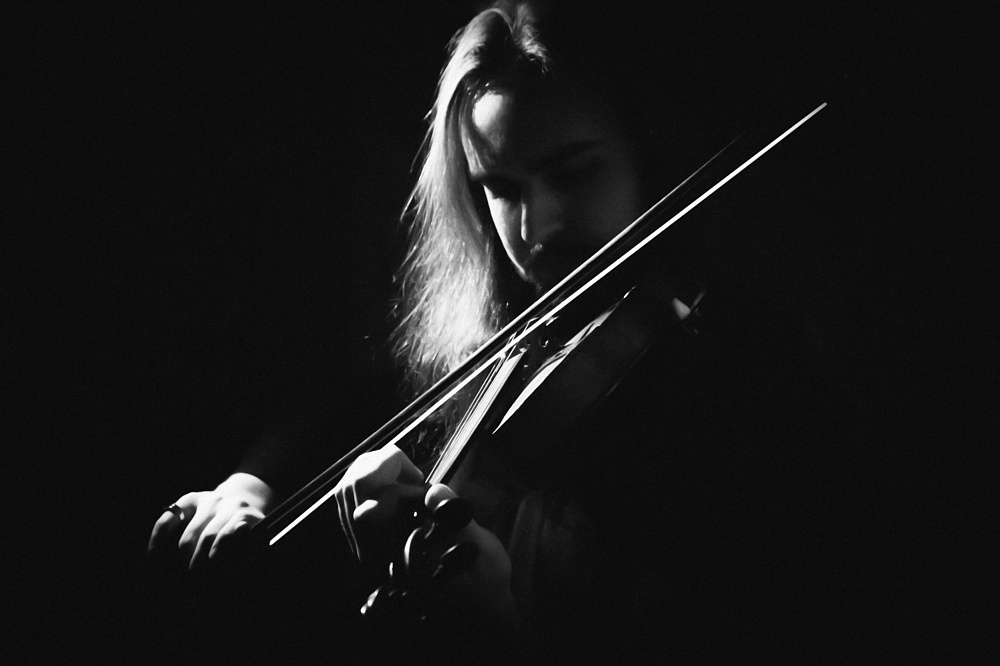
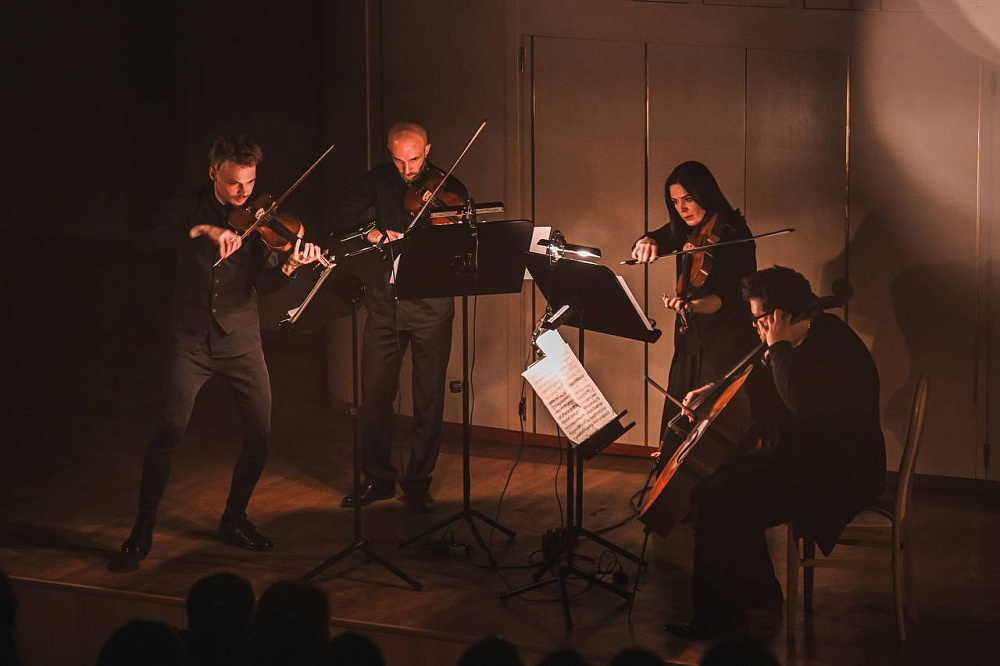
The Great Hall of the Perm Philharmonic
Robert Schumann (1810–1856)
Kreisleriana, Op. 16 (1838)
Johannes Brahms (1833–1897)
Theme and Variations in D minor, Op. 18b (1860)
Nikolai Medtner (1879–1951)
Three Fairy Tales for Piano, Op. 42 (1914)
Pieces No. 2 and No. 4 from Six Fairy Tales for Piano, Op. 51 (1928)
Pieces No. 3 and No. 1 from Four Fairy Tales for Piano, Op. 26 (1912)
Sergei Prokofiev (1891–1953)
Sarcasms, Op. 17 (1914)
Domenico Scarlatti (1685–1757)
Selected keyboard sonatas
6+
Private Philharmonic Triumph
Performers:
Ivan Naborshchikov, violin
Yuri Panov, piano
Programme:
Anton Webern (1883–1945)
Four Pieces for Violin and Piano, Op. 7 (1910 / 1914)
Sehr langsam
Rasch
Sehr langsam
Bewegt
Sergei Prokofiev (1891–1953)
Sonata for Violin and Piano No. 1 in F minor, Op. 80 (1938–1946)
Andante assai
Allegro brusco
Andante
Allegrissimo
John Cage (1912–1992)
Nocturne for Violin and Piano, JC. 93 (1947)
Béla Bartók (1881–1945)
Sonata for Violin and Piano No. 1 in C-sharp minor, BB. 84 (1921)
Allegro appassionato
Adagio
Allegro molto
18+
Perm Philharmonic Organ Concert Hall
Performers:
Dmitry Borodin, violin
Andrey Roszyk, violin
Dinara Muratova, viola
Vladimir Slovachevsky, cello
Andrey Baranenko, piano
Programme:
Maurice Ravel (1875–1937)
Piano Trio in A minor, M. 67 (1914)
Modéré
Pantoum: Assez vif
Passacaille: Très large
Finale: Animé
Marko Nikodijević (b. 1980)
String Quartet No. 2 (2019)
Introduzione
Ruvido e animato
Tango. Oscuro e minaccioso
Vivace
Adagio mesto
Intermission
Marko Nikodijević
Prelazak preko noćnog plavetnila / “Crossing the Night Blue”
for piano quintet (2020)
Dmitri Shostakovich (1906–1975)
Piano Quintet in G minor, Op. 57 (1940)
Prelude: Lento – Poco più mosso – Lento
Fugue: Adagio
Scherzo: Allegretto
Intermezzo: Lento
Finale: Allegretto
6+
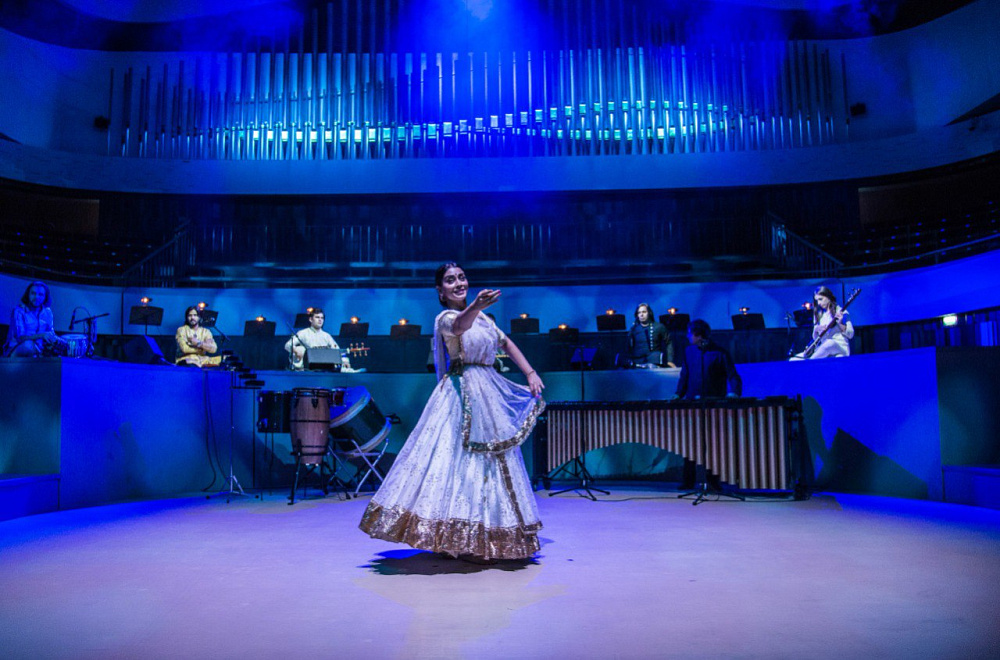
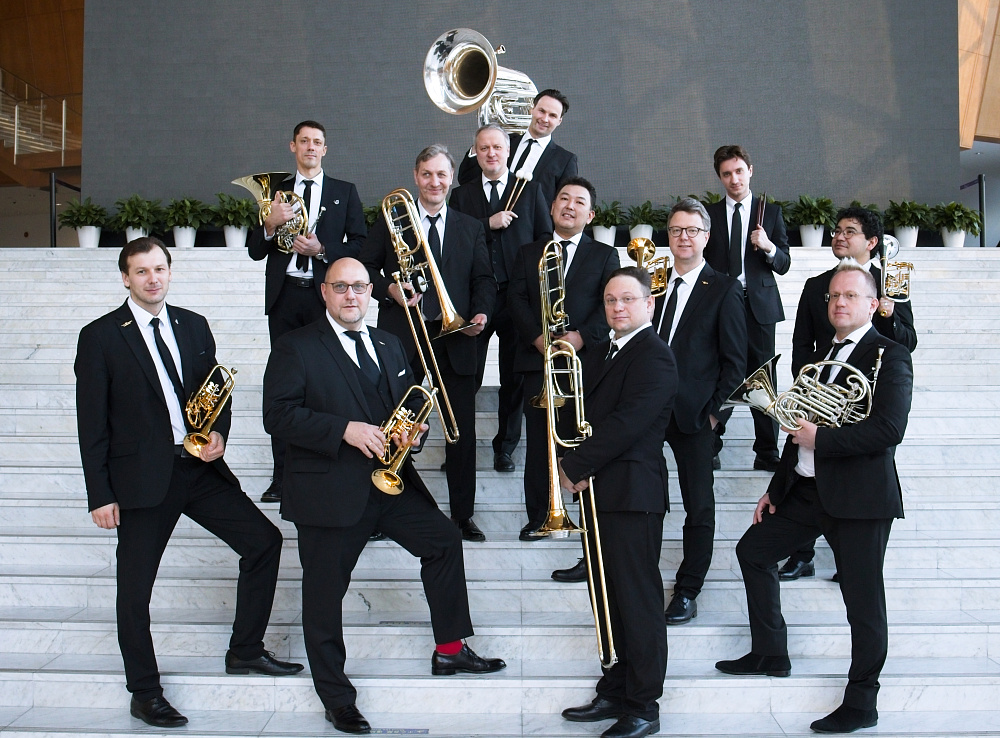
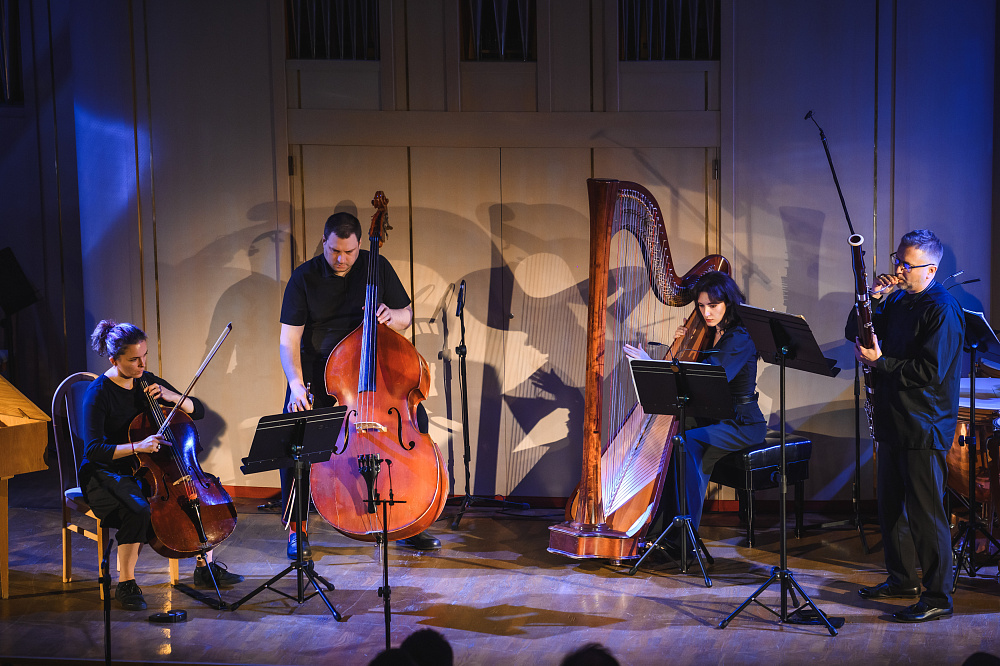
The Great Hall of the Perm Philharmonic
A musical fantasy inspired by the writings of Khalil Gibran
Idea by Pyotr Glavatskikh
Directed by Vasily Pospelov
Lighting design by Nikita Chernousov
Performers:
Pyotr Glavatskikh – percussion
Shriya Saran (India) – narration and dance
Hindustani Ensemble
Weinberg String Quintet
On the programme:
Grigoriy Smirnov (1982)
Mirrors of Emptiness for marimba and delay effect (2008)
Hazrat Inayat Khan (1882–1927)
Suite from the music for the play Shakuntala, arrangement for string quintet by Vladimir Pol (1914)
Pyotr Glavatskikh (b. 1979)
Dedication to Khalil Gibran for solo percussion
Traditional Hindustani music
Traditional Kathak dance
Reading
16+
Great Hall of the Perm Philharmonic
Concert
Program:
Works by J.S. Bach and jazz compositions
Perm Philharmonic Organ Concert Hall
Performers:
Konstantin Efimov, flute
Oleg Tantsov, clarinet
Mikhail Dubov, piano
Evsevy Zubkov, percussion
Evgeny Subbotin, violin
Olga Demina, cello
Programme:
Georges Aperghis (b. 1945)
Graffitis for solo percussionist (1980)
George Crumb (1929–2022)
Eleven Echoes of Autumn for flute, clarinet, violin, and piano (1966)
Frederic Rzewski (1938–2021)
Pocket Symphony for flute, clarinet, piano, percussion, violin, and cello (1999–2000). Russian premiere
12+
Diaghilev House
16+
House of Music (Shpagin Factory, Building A)
Concert-Performance
Musical Director and Conductor: Teodor Currentzis
Director: Anna Guseva
Chief Choirmaster: Vitaly Polonsky
Choreographer: Anastasia Peshkova
Performers:
musicAeterna Choir
soloists of the musicAeterna Orchestra
musicAeterna Dance company
18+
House of Music (Shpagin Factory, Building A)
Concert-Performance
Musical Director and Conductor: Teodor Currentzis
Director: Anna Guseva
Chief Choirmaster: Vitaly Polonsky
Choreographer: Anastasia Peshkova
Performers:
musicAeterna Choir
soloists of the musicAeterna Orchestra
musicAeterna Dance company
18+